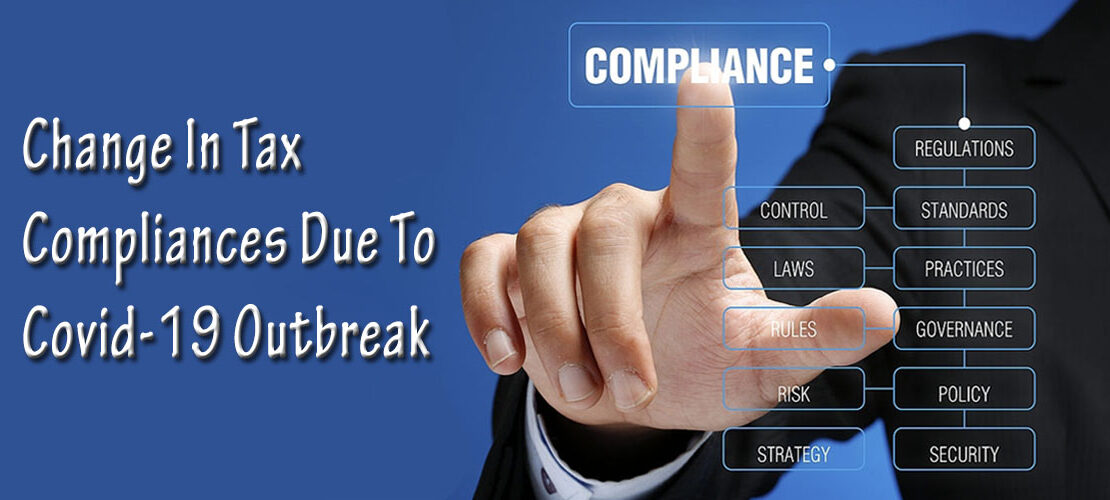Change in tax compliances due to Covid-19 outbreak
- December 9, 2019
- Posted by: admin
- Categories:

Change in tax compliances affected various taxpayers in India. Tax administrations are considering various measures to support taxpayers as whole or particular classes of taxpayers affected due to Covid-19 outbreak. Central board of direct taxes and central board of indirect taxes and customs aim to provide relief measures for businesses and self – employed taxpayers generally focus on helping to alleviate cash flow problems to help or avoid problems such as laying – off workers.
Various relaxations like due dates for the issue of notice, intimations, notifications, approval orders, sanction orders, filing of appeal, furnishing of return, statements, applications, reports and any other documents, and the time limit for completion of proceedings by the authorities and any compliance by the taxpayer, including investment in saving instruments or investments for roll-over benefit of capital gains under various legislations which affect the tax payers. Ministry of corporate affairs issued guidelines related to CSR policy. It is notified that spending of CSR funds for Covid-19 related relief work is eligible CSR activity. Funds may be spent for various activities related to Covid-19 such as promotion of health care and disaster management.
The further relaxation of timelines in filing returns, TDS, TCS and audit reports, these unprecedented times is a welcome move by the Central Government. The extended period will give taxpayers time to streamline tax compliances. It is recommended that the Central Government consider a tax relief package which can serve the twin purpose of stimulating demand and bolstering domestic investment by savings. Constantly changing government regulations must be taken into account. Local notifications are regularly issued on short notice, which must be observed by employers. It is therefore inevitable that every employer keeps up to date and thinks about necessary measures in advance so that the company can respond quickly to new situations.
Various measures have been taken like, additional time for dealing with tax affairs, quicker refunds, Audit policies and tax certainty and Enhanced services and communication initiatives through social media. All these measures and relaxations provide positive impact. There have been some prior attempts regarding tax compliance. Enforcement efficiency drew the attention of tax authorities. It has been found that the number of income tax filed returns increased by increasing enforcement efficiency. This founding shows that government enforcement’s intensity and effectiveness can affect tax compliance primarily. To improve India’s tax compliance, communication via mass media was another strategy on which tax authorities focused. They aimed to inform people about procedures, filing deadlines, and tax amnesty schemes through mass media campaigns. They also try to encourage individuals emotionally by showing them taxpaying as a national duty, tax morale, and instilling fear among tax evaders. This strategy slightly improved tax compliance rates.
